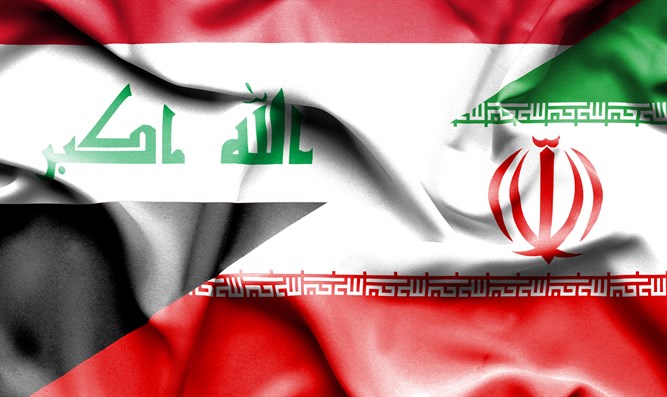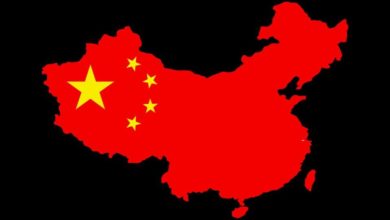ايران في العراق: الثابت والمتحول في الدور والنفوذ
Iran in Iraq: constant and shifting role and influence

اعداد : د. علاء نزار العقاد – فلسطين/ قطاع غزة – جامعة القدس المفتوحة/غزة
- المركز الديمقراطي العربي
- مجلة مدارات إيرانية : العدد التاسع أيلول – سبتمبر 2020 المجلد 3, دورية علمية محكمة تصدر عن #المركز_الديمقراطي_العربي ألمانيا –برلين” .تعنى بالشأن الإيراني داخليا واقليميا ودوليا.
-
فصلنامه مدارات إيرانية فصلنامه أي علمي از طرف مركز دمكراسي عربي برلن منتشر مي شود.
للأطلاع على البحث “pdf” من خلال الرابط المرفق :-
الملخص :
جاء البحث بعنوان “إيـران في العراق: الثابت والمتحول في الدور والنفوذ”، في الفترة الزمنية منذ بدء الاحتلال الأمريكي للعراق 2003م وحتى 2020م. بهدف تتبع ما أحدثه النفوذ الإيراني من تغيير في المعادلة السياسية الداخلية في العراق، لصالح القوى الشيعية وعلى حساب السنة التي ظلت لعقود طويلة، المتحكم الأساسي في الأوضاع السياسية في العراق، وما ارتبط بذلك من فتح المجال العراقي لدخول قوى اقليمية عديدة، على رأسها ايران، تحاول تحقيق اجنداتها الخاصة مستعينة في سبيل تحقيق ذلك، ببعض أدواتها كنفوذها الديني والأحزاب والميلشيات الشيعية التي تعاظم دورها بعد اسقاط نظام صدام حسين. واعتمد البحث على المنهج الوصفي التحليلي وأيضا منهج دراسة الحالة للوصول إلى معلومات وحقائق تفصيلية حول الأحداث والتطورات التي تشهدها العراق، والتي لا زالت مستمرة إلى يومنا هذا. وخلص البحث ان الحديث عن النفوذ الإيراني في العراق لا يمكن ان يكون دون الحديث عن السياسة الخارجية الإيرانية لأن العراق يحتل مركزا مهما في السياسة الخارجية الإيرانية. فاذا عرفنا أهداف المشروع السياسي الإيرانيـ أبعاده، مقوماته، أدواته، أهدافه، نستطيع أن نعرف موقع العراق داخل هذا المشروع . كما خلص ان الصورة التي تظهر للدور والنفوذ الإيراني في العراق، هي صورة واسعة الانتشار ومنوعة، ولكنها تظهر ضلوع إيراني حذر يهدف إلى تأمين مصالح النظام الأساسية: الحفاظ على وحدة الأراضي العراقية، وتجنب التردي والانزلاق إلى الفوضى أو الحرب الأهلية، والتشجيع على حكومة صديقة لا تشكل تهديداً ويهيمن عليها الشيعة، والاحتفاظ بروابط ونفوذ مع مجموعة من الفاعلين. ويوضح البحث ان استراتيجية إيران تستند إلى المطلب المتمثل في عدم ظهور العراق كتهديد، سواء ذات طبيعة عسكرية أو سياسية أو أيديولوجية.
وأوصى اذا كانت إيران الآن، تحاول أن تعيد النظر في استراتيجية نفوذها تجاه العراق، فيجب أن تدرك أهمية استقلال العراق، ويجب أن تكون العلاقة، علاقة شراكة وليست سيطرة ونفوذ من جانب واحد. كما يجب العمل على عدم توريط العراقيين في الصراع الإيراني الأمريكي. وان لزيادة فرصة خروج العراق بنجاح من الإنتقال السياسي إلى الحد الأعلى فينبغي على طهران وبغداد أن تعملا معا في قضايا الأمن المشترك .
Abstract:
The research was titled, Iran in Iraq: Constant and Shifting Role and Influence, In the period of time since the start of the American occupation of Iraq from 2003 until 2020.
With the aim of tracking the change caused by Iranian influence to the internal political equation in Iraq, For the benefit of the Shiite forces and at the expense of the Sunnis, who for decades have been the main controllers of the political situation in Iraq, And the associated opening of the Iraqi field for the entry of many regional powers, headed by Iran, It is trying to achieve its own agendas, using some of its tools, such as its religious influence, and the Shiite parties and militias that have grown in their role after the overthrow of Saddam Hussein’s regime. The research relied on the descriptive and analytical approach as well as the case study approach to obtain detailed information and facts about the events and developments in Iraq, which are still continuing to this day. The research concluded that talking about Iranian influence in Iraq cannot be without talking about Iranian foreign policy, because Iraq occupies an important position in Iranian foreign policy.
If we know the objectives of the Iranian political project, its dimensions, components, tools, and goals, we can know the position of Iraq within this project.
He also concluded that the image that appears to the Iranian role and influence in Iraq is a widespread and diverse one, However, it shows cautious Iranian involvement aimed at securing the regime’s basic interests: preserving the territorial integrity of Iraq, avoiding degradation and descending into chaos or civil war, encouraging a friendly government that does not pose a threat and is dominated by Shiites, and maintaining ties and influence with a range of actors. The research shows that Iran’s strategy is based on the requirement that Iraq not emerge as a threat, whether of a military, political or ideological nature. And I recommend that if Iran is now trying to reconsider its influence strategy towards Iraq, then it should realize the importance of Iraqi independence, and the relationship should be one of partnership and not one-sided control and influence. It is also necessary to ensure that the Iraqis are not involved in the Iranian-American conflict. And to increase the chance of Iraq successfully exit from the political transition to the highest level, Tehran and Baghdad should work together on common security issues.




